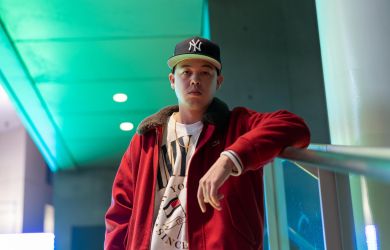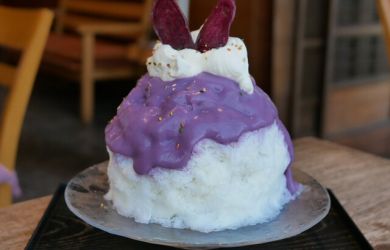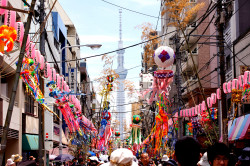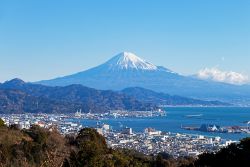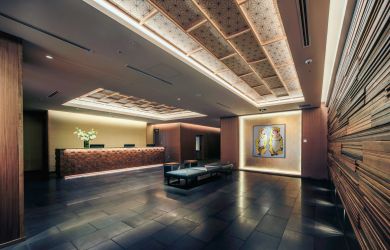
June 9, 2011
Double-H
The Jamaican DJ and record retailer talks two decades of reggae in Japan
By Metropolis
Originally published on metropolis.co.jp on June 2011

Photo by Dan Grunebaum
“I got asked to translate from Jamaican patois to English by a Japanese record distributor who used to visit the hotel I worked at,” he recalls at his Shibuya reggae specialty shop Jammers Record. “They found it confusing, so that’s where I came in. I used to do CDs, LPs and videotapes for companies like Sony and Victor.”
Harris moved to Japan in 1993 at the height of the reggae boom—a time when the biggest international music festival was not Fuji Rock (which didn’t yet exist), but Reggae Japansplash. Having spun records in Jamaica, he made the next logical step to DJing when the translation work began to dry up as Japanese came to grips with Jamaican patois.
“I started doing Jamaican nights at [legendary disco] Yellow from 94,” he says. “That was one of the best Jamaican music programs in Japan—we had like 800 people on a Wednesday night. After that I began DJing all over. Then I decided to get into the record business: import and distribution. I used to sell oldies mail order, then finally that got watered down and I thought: I’m going to open me a shop, which I did six years ago this October.”
“Double-H” now presides over a tiny empire of rare vinyl singles, LPs, cassettes and videos from his perch behind the counter of his sixth floor shop in the Udagawa record nexus. He’s dead set against transitioning to digital.
“All the stock in the shop is select vinyl,” Harris says. “It’s hard to source in Jamaica now because the Europeans and Japanese created this Gold Rush for old Jamaican music. There is nothing left down there.” He says he finds most of his rare vinyl in the US now.
From Japan to Jamaica, analog is on its way out. Yet the novelty factor is creating a small but dedicated young coterie of vinyl junkies. “This year I have six new customers who are beginner DJs,” he says. “They are fascinated by the way you put a needle on a record—it’s a different way of DJing and they’re into it.”
It’s not Bob Marley records that bring enthusiasts to Jammers. “Everybody has a Bob Marley album in their collection—they are looking for something more underground,” Harris says about Japan’s music otaku.
But even with a new generation of devotees, vinyl’s heyday in Japan looks to be over. “Japan is closing down,” Harris says. “The biggest dancehall shop Rockers Island ceased business a few months ago. So around here this is the only real reggae shop. You go to another shop and you might see a few records, but most of it is not real reggae.”
Harris DJs as Double-H most weekends around Japan, but he says the shift in the market from imported Jamaican reggae to native “Japa-reggae” is making things hard. “I didn’t kiss ass to get respect in Japan, because the anti-gaijin sentiment is really strong,” he states.
“Everybody says Japanese only want to listen to Japanese DJs, they don’t want to listen to gaijin. And it’s a fact. But I made a small inroad. I have a bunch of guys who follow me and learn about music from me. But I am always one step ahead of them. Most foreigners give away their ace card and that’s why they end up with zero.”
These days Japan’s biggest reggae festival—July’s Starlight Reggae Festa—is a Jamaican-free affair. Between the “Japanification” of reggae and the overwhelming digital tide, Harris is sober about the future.
“Japanese are business people, and they realized that the market would be good,” he says about the glory days of reggae in Japan in the 90s. “But I wouldn’t be surprised if reggae music here goes back to zero when it’s no longer trendy.”
So, aside from his Japanese family, what keeps him here? “I’m kind of stuck in a way because I have a business,” he admits. “But the upside is some Japanese can be so nice they make me cry. I have the best group of Japanese friends—I’ve chosen them like fine wine over 17 years.”
Double-H spins every first Sat at Ikebukuro One Blood; every second Fri at Shinjuku Garam; every third Sat at Nogizaka Cactus; and every fourth Fri at Shinjuku Open. Info: jammersrecord.com
